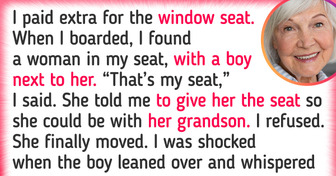Good article for those who do not want to ruin their child’s psyche
9 Ways to Punish a Child That Won’t Damage Their Self-Esteem
According to statistics, almost every single parent is convinced that they are doing the right job raising their children and teaching them lessons. But in fact, it’s not all that simple and smooth. Most of the time, adults can’t control their emotions and punish their children more than they deserve. This, in turn, has negative consequences for the children: they develop fears and stereotypes that make everything harder for them.
We at Bright Side are convinced that nobody likes punishing children, but sometimes it’s absolutely necessary. Recommendations from experts can help us deal with these situations, so we decided to share them with you.
1. If a child didn’t have bad intentions, they shouldn’t be punished.
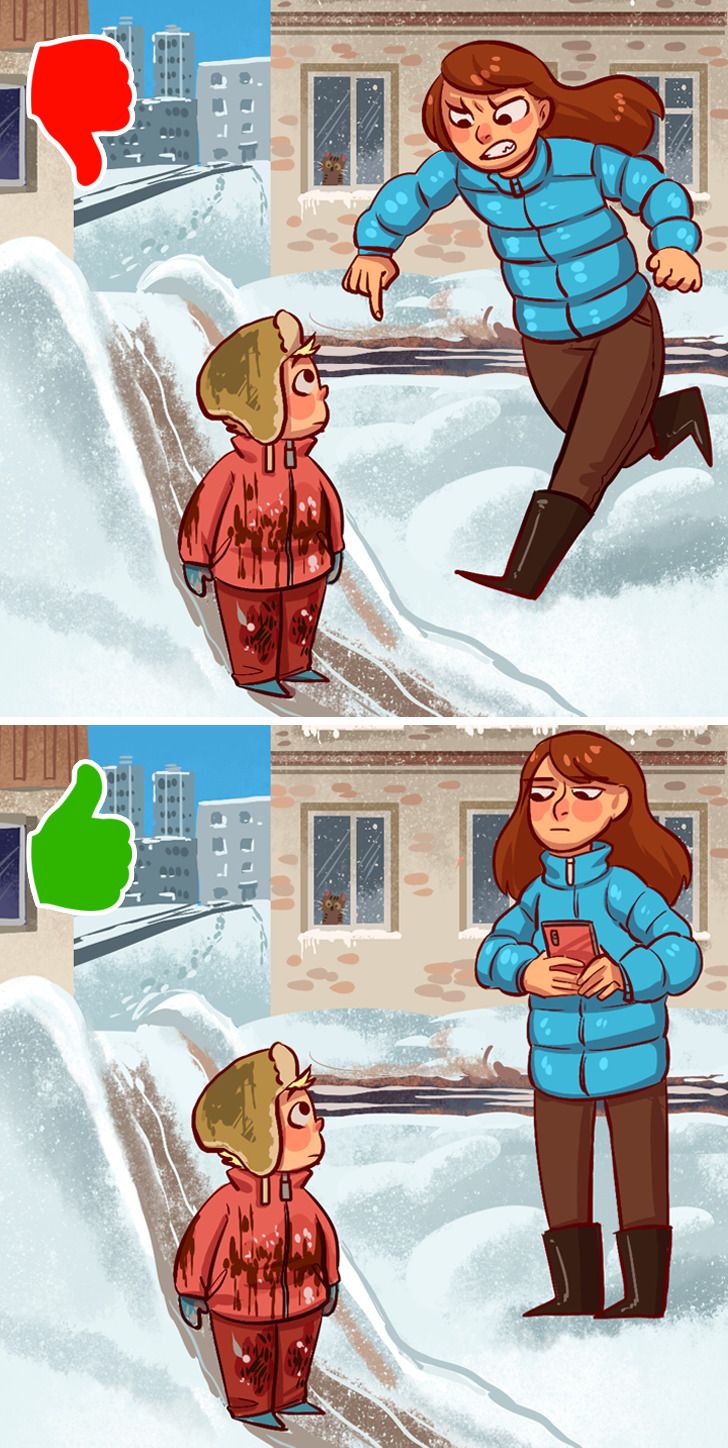
Most of the time, children aren’t trying to harm anyone, they just want to discover things. And when a child is just trying to learn, they should be supported even if their actions led to something bad. The same goes for situations that were complete coincidences. Sympathize with the child and tell them how to fix the situation.
When punishing children for accidents, parents risk raising an indecisive person. They can do things on command really well because they are used to behaving in the presence of someone powerful. But this adult can’t make their own decisions, and they are also not very responsible.
2. Suggestions and orders are different things.
These situations are called stereotypical actions. Most of the time, parents think that traditional ways of upbringing are right. Adults’ thinking goes like this: “because it’s right” or “because my parents did the same thing.” There is a huge difference between saying, “Maybe you shouldn’t play games,” and “Don’t play games.” The first is a suggestion, and the latter is an order. So you should only punish your children if you’ve ordered your children to do or not do something.
If a child is emotionally strong and stable and gets punished for going against a suggestion, it will be okay for them. But if they are sensitive, it can hurt them. When a sensitive child grows up, this could make them want to follow the orders of all people they respect because they are scared of the consequences.
3. Punishment should not be emotional.
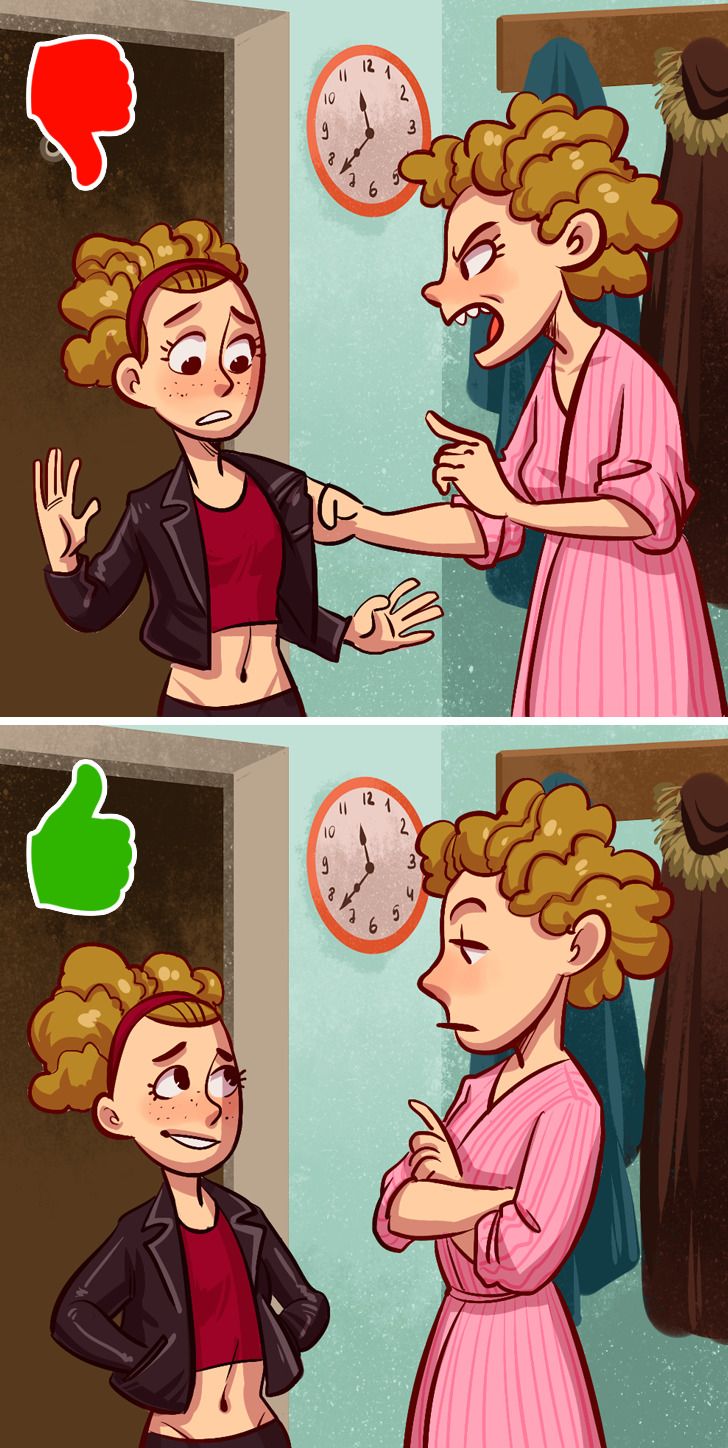
If a child doesn’t want to obey, some parents get really angry and can’t control it, even though they love their children. It is often caused by the huge expectations they have for their children. And when these expectations meet reality, parents become unsatisfied. These emotions should be suppressed.
If a child is easily impressionable, they might have problems in the future because of all the screaming. Psychologists say that they may be dependent on people who have a high social status.
4. Public punishment is unacceptable.
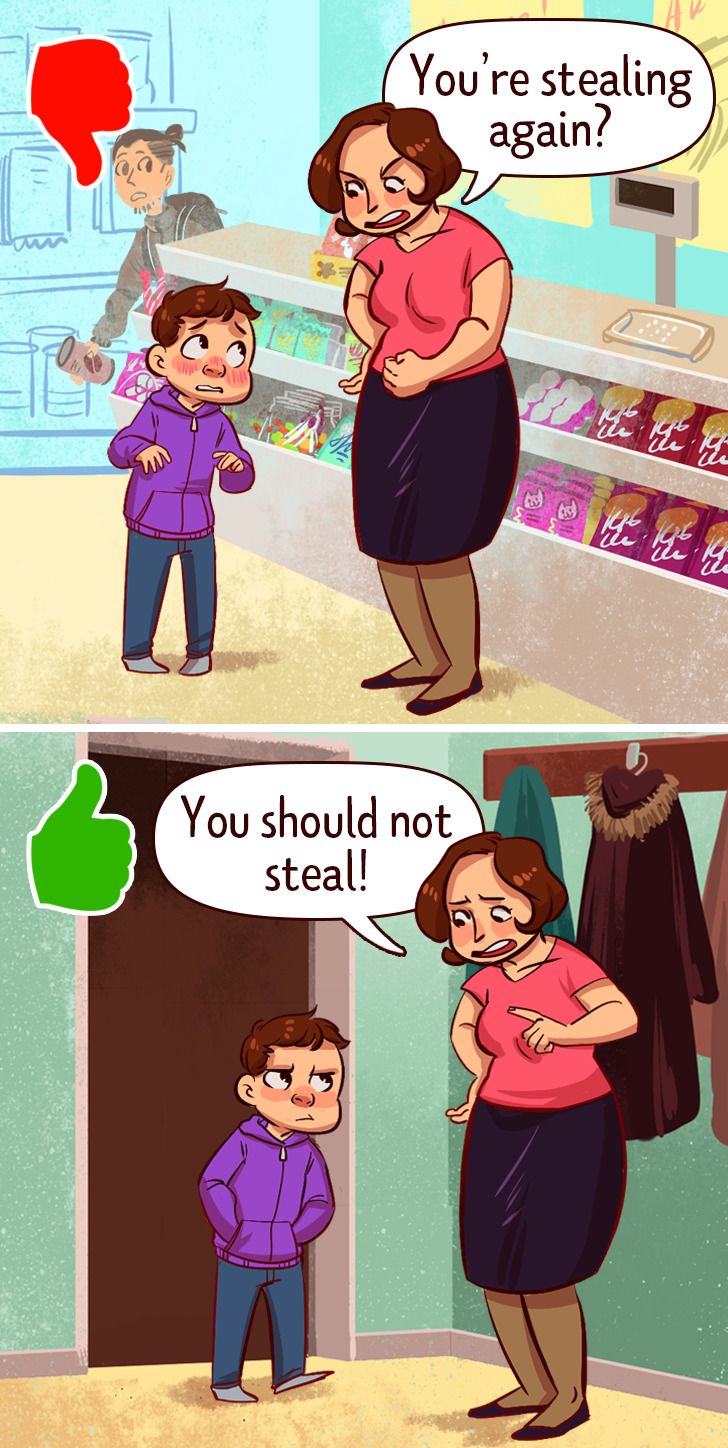
Public punishment makes children embarrassed and angry. That’s why popular phrases, like “What will other people say?” should be avoided. By the way, the same thing happens when children are rewarded in public, as they may become too arrogant.
A child who is often punished in public always feels humiliated and expects the situation to repeat itself. In their adult life, they can turn into a person that totally relies on the opinion of the majority and they won’t be able to make their own decisions.
5. If you threatened to punish, you should punish.
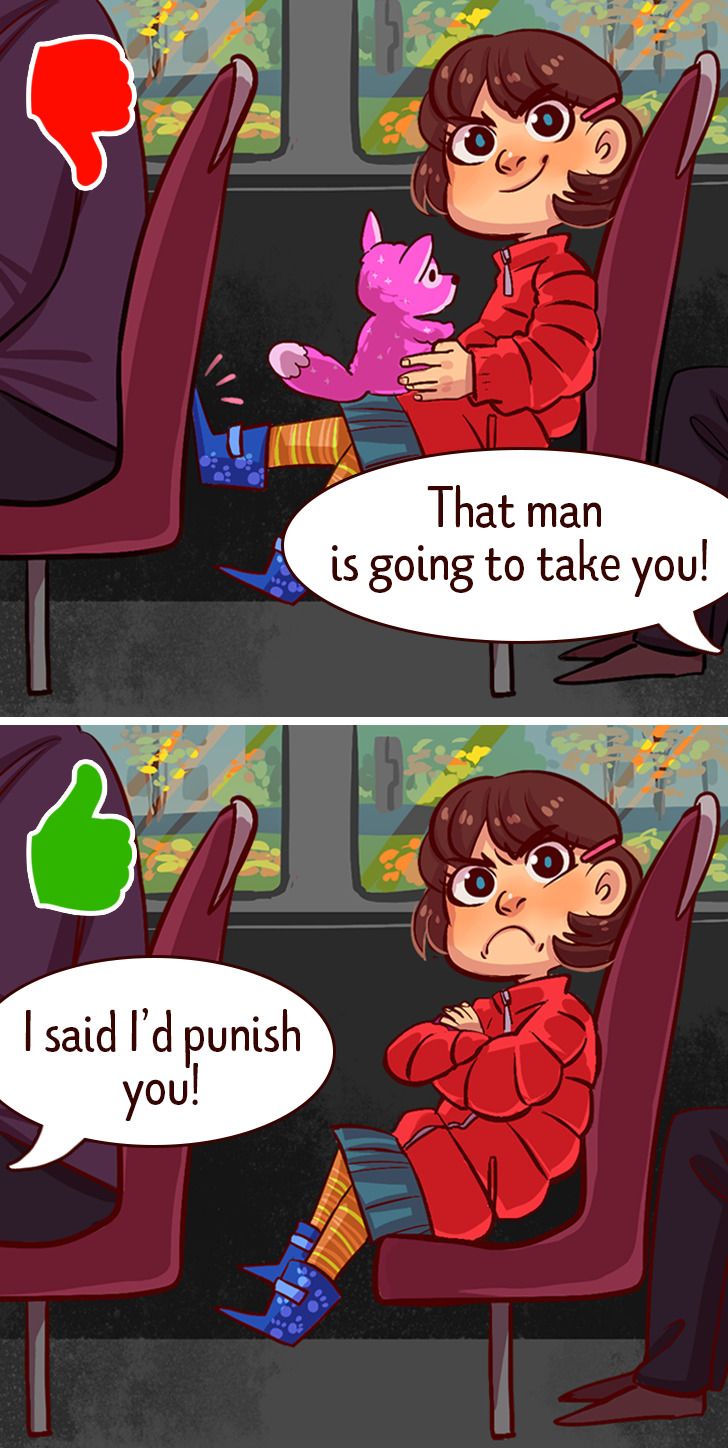
If an adult promised to punish a child, they should do it. A threat that you only promised, according to child psychologists, is worse than no punishment at all. Children quickly realize that parents just say words and they stop trusting them. Their system of values soon becomes damaged: they can’t understand the difference between good and bad because they don’t have a regulation system.
However, you can neglect the punishment if the anticipation of it was already effective. But in this case, you should explain to the child that this behavior is not normal, it’s only a rare exception.
6. When you don’t know who is guilty, punish everyone!
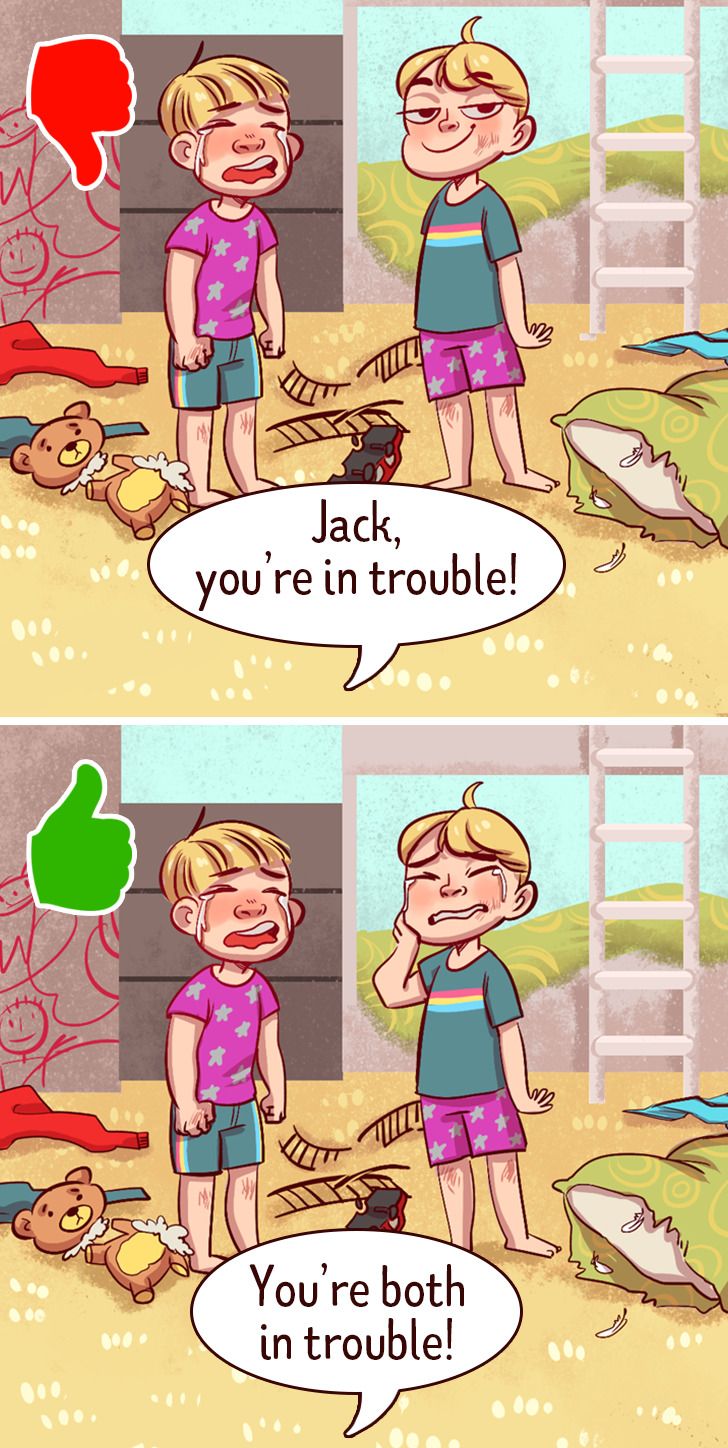
If a parent is not sure which child is guilty, they should not just punish one of them. In a situation when your child was with a friend, you should not criticize the other children at all. If they were with their brothers or sisters and the thing they did was serious and they need to be punished, then everyone should be punished.
If you don’t do it, the person you punished will be damaged and may become a scapegoat in the future. And other children will have an inflated self-esteem and a sense of full immunity which cannot have a positive impact on their future life. Of course, this only happens if parents punish only one child.
7. Children should only be punished for current wrongdoings, but not for past mistakes.
One of the most important rules of child-rearing is: “punishment — forgiveness — forgotten.” A child who is constantly punished for their past mistakes cannot be a strong person. They will be scared of doing something new and will prefer a routine. It can also be really hard for them to learn from their own mistakes. Instead of analyzing their mistakes, they will just fixate on them.
Also, if parents find out about something bad that a child did a long time after it happened, psychologists also don’t recommend punishing. All parents have to do is simply explain to the child what they did wrong.
8. Punishment should be appropriate for their age and hobbies.
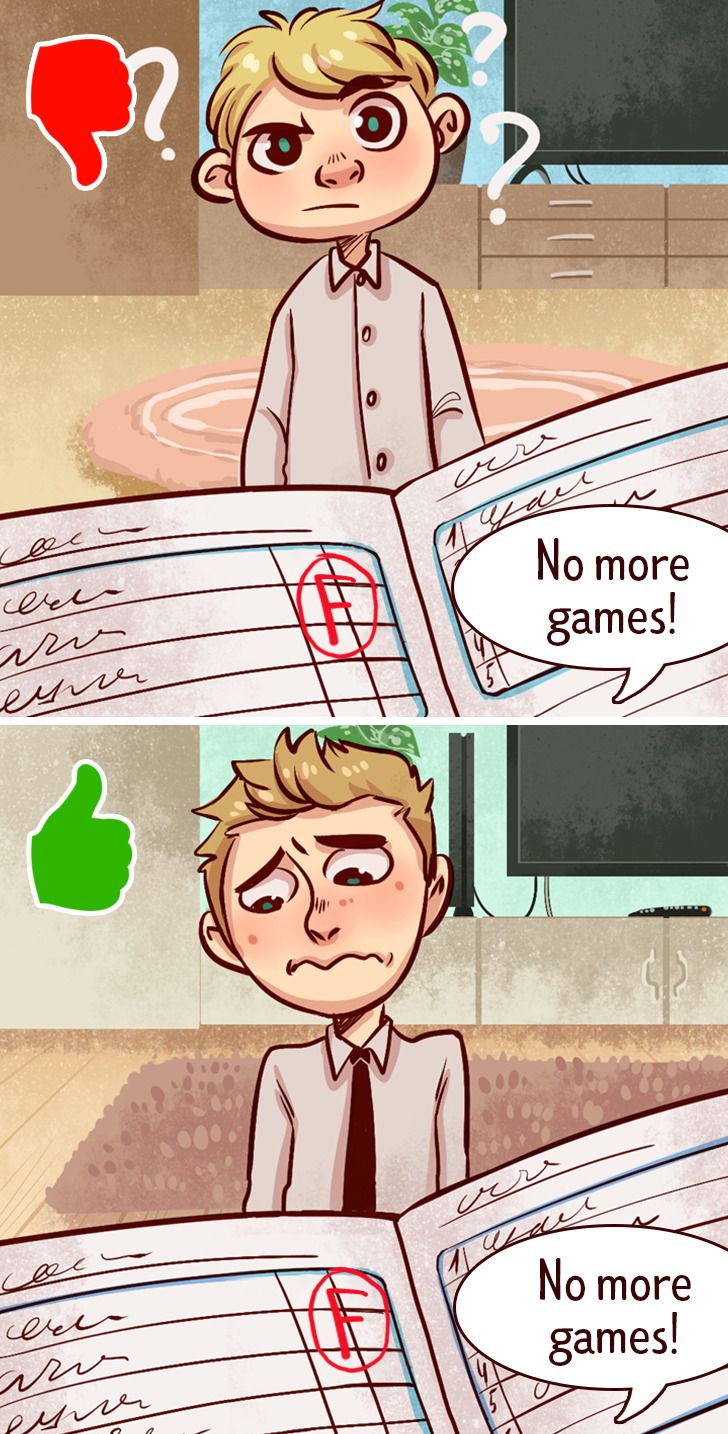
The system of punishment should be clear and balanced. Don’t give the same punishment for bad grades and a broken window. Small things deserve small punishments, while big things call for serious punishments.
Also, you should take a child’s age and preferences into account. If a child loves social media, you should limit their usage time as a good punishment. And if a child doesn’t use it at all, you should think of a different way to punish them.
A child who always gets the same punishment for different things can’t build a good system of moral values because they can’t tell the difference between the importance of things.
9. Don’t use bad or offensive words.
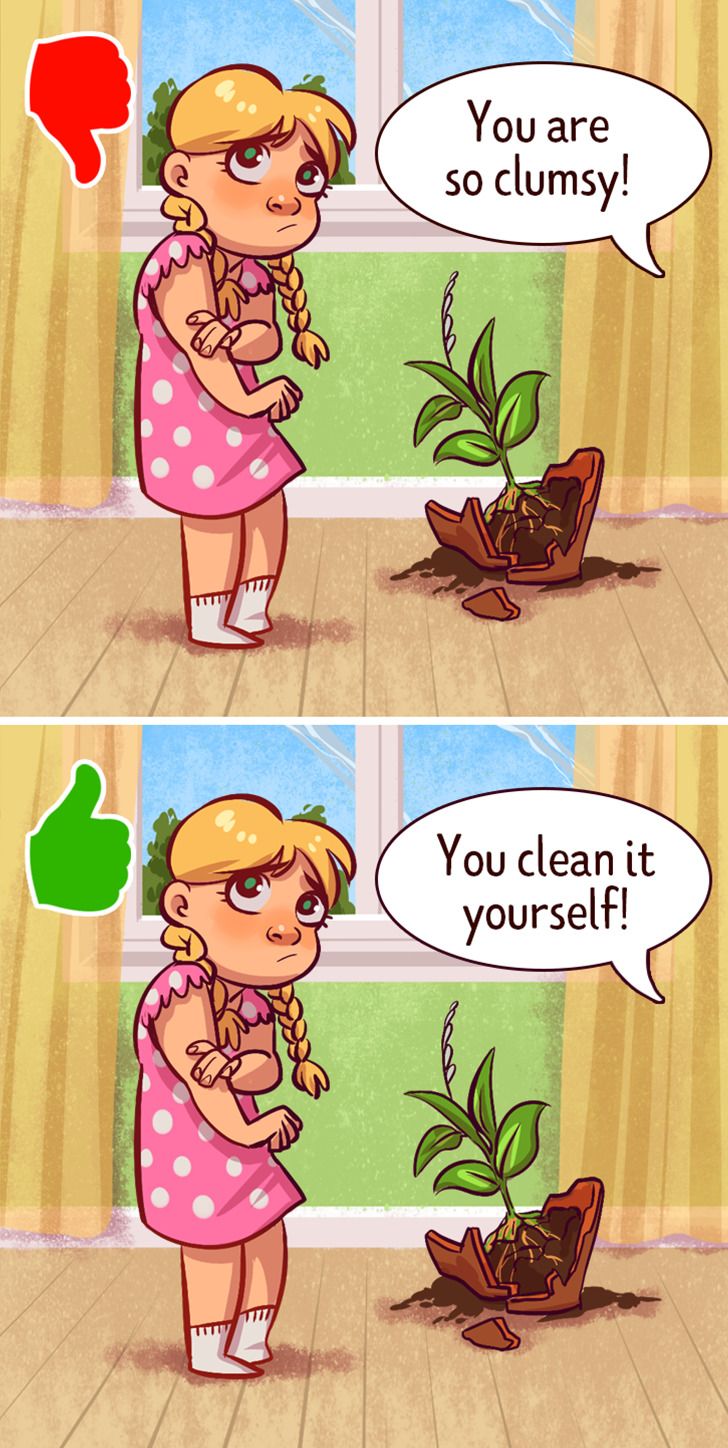
This happens when people are really emotional. Many parents don’t even notice that they do it. Psychologists recommend using only a neutral vocabulary.
Sensitive children may have issues with low self-esteem. They may memorize the times when their mother or father used a bad word. This is more serious for girls, so be especially careful with them.
Maybe you have had to deal with the wrong methods of punishment and their consequences? How do you punish your kids? Tell us about it.
Comments
good Ariticle for those who do not want to ruin their child ' S
Related Reads
6 Types of Child Behavior That Are Dangerous to Ignore
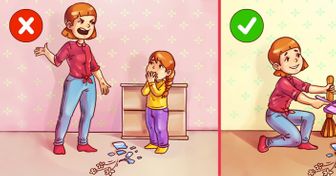
11 Comics That Show a Tremendous Difference Between the Recent Past and the Present

10 Types of Advice That Only Narrow-Minded People Can Give

20 Bright Siders Share Stories That Prove Children Live to Tell the Truth to Anyone They Meet
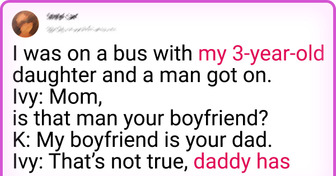
10+ Celebrities We Didn’t Know Had a Lot of Children
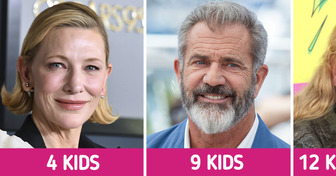
12 Puzzles That Are Trickier Than They May Seem at First Glance

9 Things You Should Never Forbid Your Child From Doing

10 Moms and Dads From Reddit Shared Their Tips That Are Cooler Than Any Parenting Book

8 Reasons Why Bad Students Often Earn Way More Than A-Students

20 People Who Had an Unforgettable Experience at a Restaurant
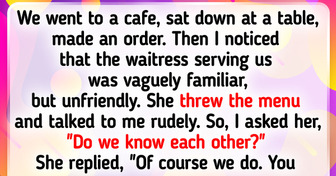
15 Cheaters Who Experienced Firsthand What the Boomerang Effect Means

A Woman Tried to Steal My Seat on the Plane Using an Unsettling Tactic
